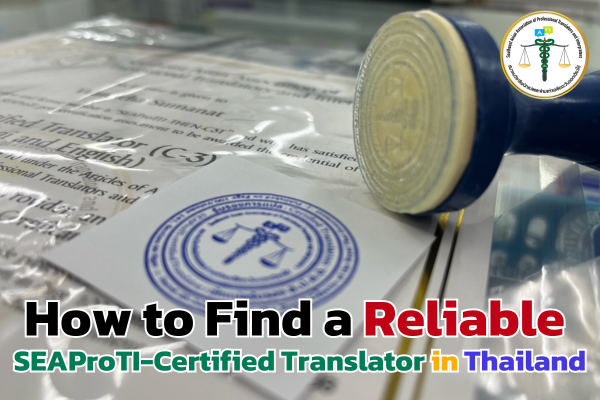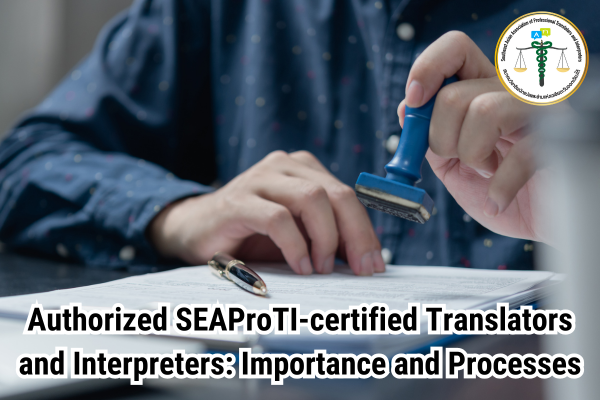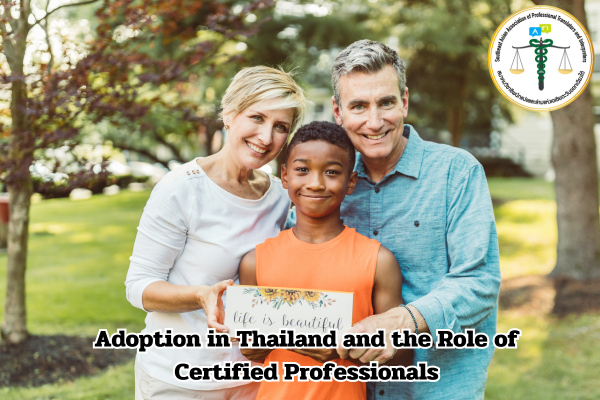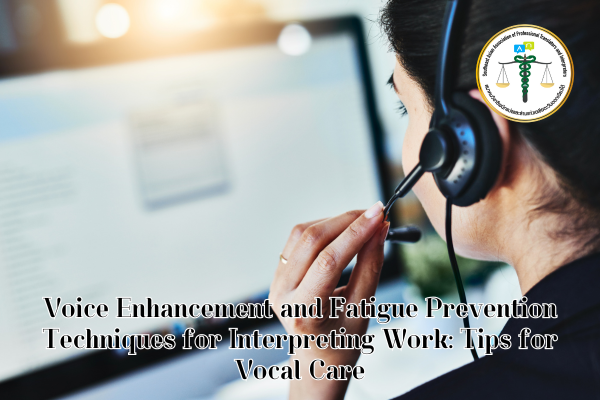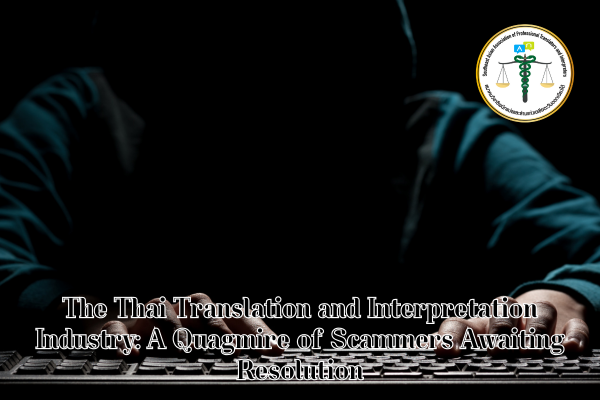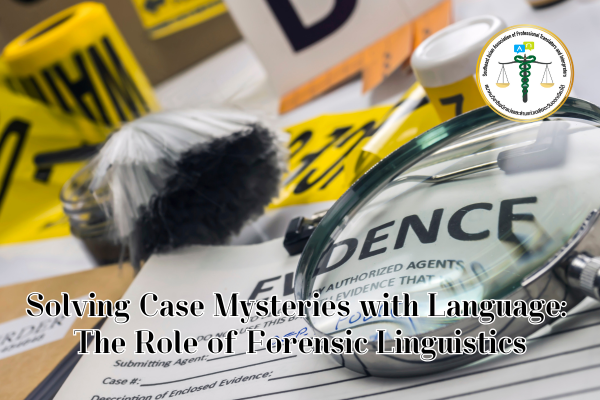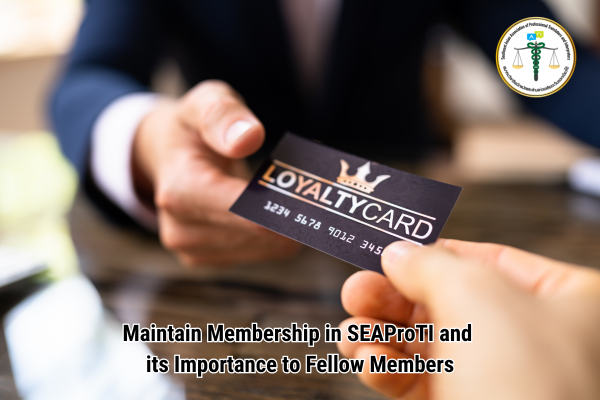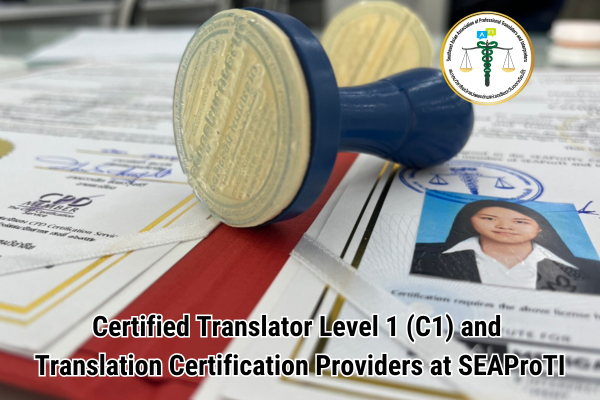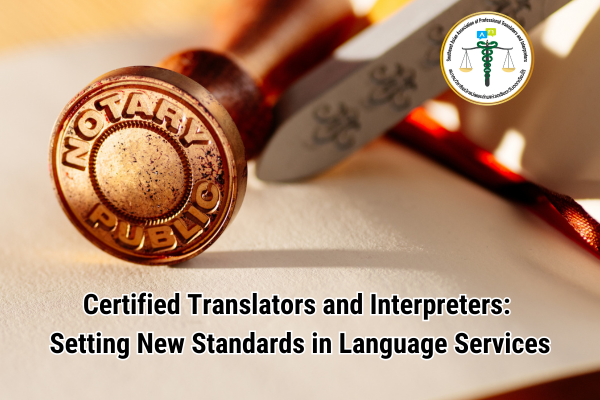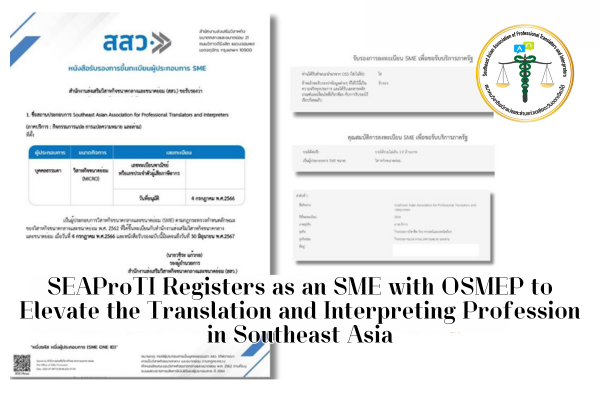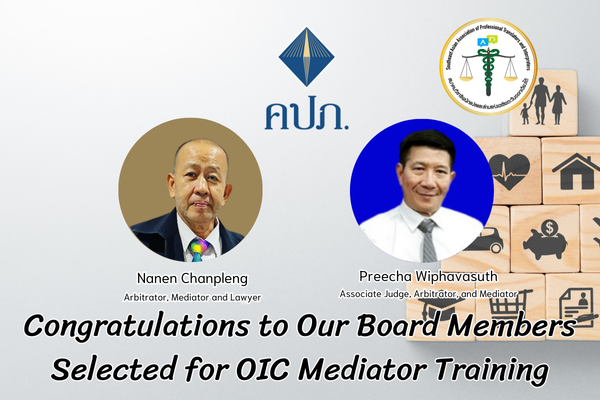In today’s interconnected world, the demand for professional translation services has never been greater. Whether for legal documentation, medical reports, or business contracts, accuracy and reliability are paramount. In Thailand, one of the most trusted sources for professional translators is the Southeast Asian Association of Professional Translators and Interpreters (SEAProTI). This article will guide you through the process of finding a reliable SEAProTI-certified translator in Thailand, ensuring your translation needs are met with the highest standards of professionalism and accuracy.
1. Understanding SEAProTI Certification
Before diving into how to find a certified translator, it’s essential to understand what SEAProTI certification entails. SEAProTI is a prestigious professional association recognized across Southeast Asia. Translators and interpreters certified by SEAProTI have undergone rigorous examinations and vetting processes to ensure their competence in various specialized fields such as legal, medical, technical, and financial translation.
Why Choose a SEAProTI-Certified Translator?
SEAProTI-certified translators are not just language experts; they are professionals who adhere to strict ethical guidelines and industry best practices. They have demonstrated their ability to handle complex and sensitive documents, ensuring confidentiality and accuracy.
2. Determine Your Needs
Before starting your search, clearly define your translation requirements. Consider the following:
- Document Type: Is it a legal contract, medical report, business proposal, or personal document such as a birth certificate?
- Target Audience: Who will read the translated document? Understanding the audience can influence language tone and style.
- Languages Required: Identify the source and target languages. SEAProTI-certified translators cover a wide range of language pairs, including Thai-English, Thai-Chinese, Thai-Japanese, and others.
- Urgency: How quickly do you need the translation? Some certified translators offer expedited services for urgent requests.
3. Search Through SEAProTI’s Official Channels
SEAProTI maintains an official directory of certified translators and interpreters. Here’s how you can use it:
a. Visit the Official SEAProTI Website
The association’s website offers a searchable database of certified professionals. You can filter by language pair, specialization, and location.
b. Contact SEAProTI Directly
If you’re unsure about which translator to choose, contact SEAProTI. Their staff can recommend certified professionals based on your specific needs.
c. Verify Certification
Always ensure that the translator you choose is currently certified. SEAProTI regularly updates its certification list, and only active members in good standing are listed.
4. Evaluate Experience and Specialization
Not all translations are created equal. For specialized fields, such as legal or medical translations, it’s crucial to find a translator with relevant experience.
- Legal Translation: Legal documents require precision and familiarity with legal terminology. A small error could lead to significant legal implications.
- Medical Translation: Accuracy in translating medical records, prescriptions, or clinical trial documents is vital for patient safety.
- Technical Translation: If you’re dealing with user manuals or technical specifications, look for a translator with expertise in your industry.
Check the translator’s portfolio or ask for samples of previous work. SEAProTI-certified translators are required to submit work samples annually, ensuring their skills remain sharp and up to date.
5. Read Client Reviews and Testimonials
Client reviews can provide valuable insights into a translator’s reliability and quality of work. Look for testimonials on the SEAProTI website or ask the translator for references. Reliable translators often have a list of satisfied clients who can vouch for their professionalism and accuracy.
6. Assess Communication Skills
Effective communication is key to a successful translation project. During your initial interaction with a translator, evaluate their responsiveness and willingness to discuss your project in detail. A professional translator will:
- Ask clarifying questions about your project.
- Provide a clear timeline for completion.
- Explain their process, including quality control measures.
7. Understand Pricing and Payment Terms
SEAProTI-certified translators typically charge higher rates than non-certified counterparts, reflecting their expertise and the added value of certification. However, the cost can vary based on:
- Document complexity.
- Urgency of the project.
- Language pair.
Request a detailed quote and ensure there are no hidden fees. Understand the payment terms, including any deposit requirements or installment options for large projects.
8. Request a Sample Translation
For larger or ongoing projects, consider requesting a sample translation. This allows you to evaluate the translator’s work quality and style before committing to a full project.
9. Check for Confidentiality Agreements
Professional translators often handle sensitive information. SEAProTI-certified translators adhere to strict confidentiality guidelines. If your document contains sensitive data, request a non-disclosure agreement (NDA) to ensure your information remains secure.
10. Consider Additional Services
Many SEAProTI-certified translators offer more than just translation. They may provide:
- Editing and Proofreading: To ensure your document is error-free.
- Localization Services: Adapting content for a specific culture or market.
- Certified Translations: Required for official use, such as visa applications or legal proceedings.
Discuss your full range of needs to see if additional services are available.
11. Utilize Social Media and Networking Events
SEAProTI regularly hosts events and webinars that bring together professionals in the translation and interpreting industry. These events are excellent opportunities to network and find reliable translators. Additionally, follow SEAProTI’s social media channels for updates on certified professionals and success stories.
12. Stay Involved Throughout the Project
Even after hiring a translator, stay involved in the process to ensure the final product meets your expectations. Provide timely feedback and additional context if necessary. Open communication can prevent misunderstandings and ensure the translation aligns with your goals.
Conclusion
Finding a reliable SEAProTI-certified translator in Thailand doesn’t have to be a daunting task. By following the steps outlined in this article, you can ensure your translation project is handled by a qualified professional who meets your specific needs. SEAProTI-certified translators offer a level of quality and professionalism that sets them apart, providing peace of mind for individuals and businesses alike.
Whether you’re handling legal documents, medical reports, or business communications, investing in a certified translator is a decision that pays off in accuracy, reliability, and professional excellence.
About SEAProTI:
The Southeast Asian Association of Professional Translators and Interpreters (SEAProTI) has officially announced the criteria and qualifications for individuals to register as “Certified Translators,” “Translation Certification Providers,” and “Certified Interpreters” under the association’s regulations. These guidelines are detailed in Sections 9 and 10 of the Royal Thai Government Gazette, issued by the Secretariat of the Cabinet under the Office of the Prime Minister of the Kingdom of Thailand, dated July 25, 2024, Volume 141, Part 66 Ng, Page 100.
To read the full publication, visit: the Royal Thai Government Gazette


